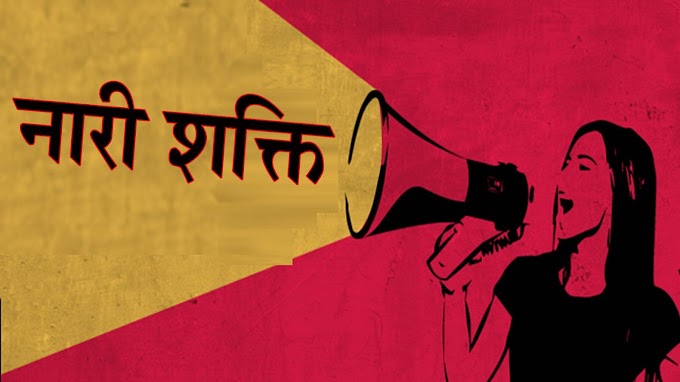According to Kaka Kalelkar, “Casteism is an over-riding blind and supreme group loyalty that ignores the healthy social standards of justice, fair play, equity and universal brotherhood.” In the words of K. M. Panikkar, “Casteism is the loyalty to the sub caste translated into political. This is unavoidable as long as the conception of sub-caste exists, for that is the one permanent loyalty that the Hindu has inherited. In fact, no organisation of society on the basis of equality is possible so long as the sub- caste exists.”
According to D.N. Prasad, “Casteism is a loyalty to the caste translated into politics.” In general, Casteism is also outlined as a development by virtue of that person’s happiness to a precise caste or cluster are either discriminated against or shown favour in spite of their qualities and demerits, simply on the premise of their caste.
Casteism exhibits different kinds of characteristics. They are as follows:
- Casteism signifies blind caste or sub-caste loyalty. It either ignores or does not take care of the interests of various castes.
- For a casteist “My caste man and my caste entirely, right or wrong” that's the principle.
- Casteism goes beyond the means of a democratic nation and community.
- It submits one’s sense of justice, truthful play and humanity to the interest of his own caste.
- It's against the lofty ideal of the constitution.
- Casteism is also a vast hurdle among the approach of nation-building and national integration.
- Casteism creates caste commonality to the extent that: (a) one caste seeks to dominate over others, (b) higher castes exploit the lower castes, (c) elections are contested and won on this particular basis, and (d) conflicts among the different sections on the basis of caste escalates.
- Casteism is largely a rural anomaly. Its role among the urban areas is negligible.
Several factors contribute to the expansion and unfolding of Casteism. they're as follows:
- Sense of caste prestige:Sense of caste status constitutes a crucial reason behind Casteism. The folk’s happiness to a selected caste attempt to enhance the status of their caste. In doing so they do not hesitate to use undesirable and hurtful strategies against another caste people.
- Endogamy: Endogamy signifies that wedding is solemnized inside one’s own caste. Since folks observe wedlock, it's quite natural that they develop a deep sense of happiness towards each other. This clearly promotes Casteism.
- Urbanization: Consequent upon urbanization and modernization, the folks migrate from rural areas to urban areas in search of employment. They dwell in an impersonal world and thus feel insecure. This want for psychological security compels them to remain in a cluster fashioned on the premise of caste. Further, they construct associations through which they'll shield their caste interests. The above mentioned result in Casteism.
- Increase within the means of transport and propaganda: Increase within the means of each transport and information has diode to the institution of relation between members of a caste who were accidently separated as a result of distance and therefore the feeling of Casteism is being quickly propagated through the medium of newspapers and communal magazines.
- Social distance: Under the normal class structure, the folk’s association to the upper castes maintain social distance from that of the lower castes through restrictions of inter-caste wedding, inter- feeding etc. The concepts and ideologies of a person are conditioned solely by his caste norms and values. This ballgame has given birth and nourishment to casteism.
- Social distinctions: Under the normal class structure, the members of the lower caste suffer from many social disabilities. Their ‘life chances’ and ‘life opportunities’ to attain social quality are restricted. Their kids don't seem to be allowed to avail instructional facilities out there to higher caste kids. In course of your time they start to feel that they're being suppressed and burdened. They become additional and additional united and check out to shield their caste interests that successively result in Casteism.
- Illiteracy and belief in spiritual dogmas: The members of the lower castes are illiterate. They're ruled by slim sectarian concerns, superstitions and blind beliefs. Within the name of ‘Jati Dharma’ or ‘Kula Dharma’, they preserve their own caste interests and stick with their caste prejudices. Even sometimes they act against the interests of alternative castes. of these factors promote casteism.
Consequences:
On the one hand, Casteism serves to more the interest of atiny low range of people. On the opposite hand, it's proving harmful to the state as an entire. a number of the foremost consequences of Casteism are as follows:
1. Hindrance within the development of nationalism:
Casteism hinders the expansion and development of nationalism. It has divided Indian Society into an oversized range of teams and sub-groups. There's additionally division within the same caste. Fairly often there happens to be inter-caste tension and intra-caste tension that cause national disintegration.
2. Hindrance to democracy:
Casteism poses a significant obstacle within the functioning of democracy. Several of the skilled politicians exploit Casteism and at election time raise the individuals to vote for them on caste concerns and that they additionally achieve their evil styles.
Even illegitimate and immoral practices are resorted for insecuring the interests of one’s own caste. By promoting slender loyalties, Casteism has weakened the modernization of the polity. By holding old-hat caste cohesion, Casteism has stood within the means of building up of a profane society.
3. Corruption:
Casteism contains a lion’s share in encouraging corruption. impressed by the sense of Casteism individuals attempt to give every kind of facilities and advantages to their own caste men. Honest play is neglected. All forms of wrong practices are even on one pretext or the opposite.
4. Hindrance in technological efficiency:
The appointment to government and personal services on the idea of caste has light-emitting diode to a rise within the range of inefficient and superfluous individuals. Competent persons with skilled experience are neglected.
Less competent individuals take care of the full scientific and technical activities. This amounts to stupendous national loss in terms of business and technological advance.
5. Against the method of development:
Casteism crumbles down the method of development. By encouraging corruption, nepotism, favoritism and blind caste loyalty, Casteism arrests the implementation of biological process programmes.
A number of suggestions could also be given for the removal of the negative effects of casteism.
Some vital suggestions area unit mentioned below:
(i) Correct data regarding Caste:
Casteism is that the product of conservative and ancient outlook. individuals possessing such outlook don't hear reason and practise casteism. If correct frame of education is provided more often to them, they'll be ready to acquire true data regarding caste and also the evil effects of casteism are often checked.
(ii) Less use of the word Caste:
The members of a caste area unit principally known through their surnames. If surnames area unit born from the name, the utilization of the word ‘Caste’ could also be avoided. This can be another method to get rid of the evil effects of casteism.
(iii) Encouragement of Inter-caste marriages:
Restriction on marriages and also the application of intermarriage causes social distances between the castes and build them caste-conscious. So as to interrupt that barrier, inter-caste marriages ought to be promoted. Inter-caste marriages can bring associate degree finish to the application of inferiority or superiority as a result of a grave kind of social interaction and inter-mixing among totally different higher and lower caste teams.
(iv) Removal of Social and Cultural Inequality:
Social and cultural difference between the castes has been the most cause for making wide socio-cultural variations. If these variations area unit removed and every one the castes area unit placed within the same socio-cultural footing, no one can suppose in terms of the interest or welfare of his own caste.







1 Comments
There is only one caste... the caste of humanity....
ReplyDeleteAwareness Seminars in Ludhiana